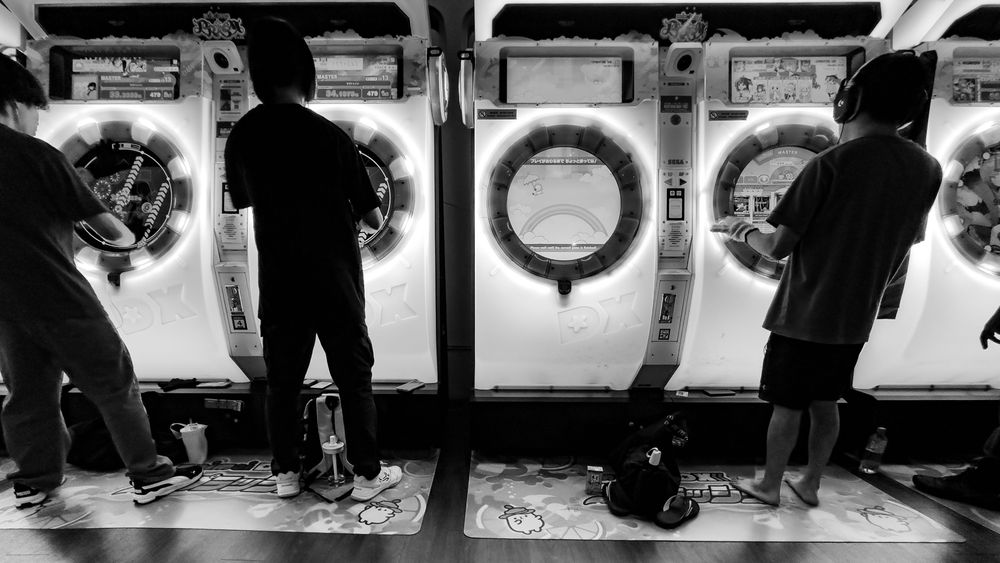Electronic beats and soft piano riffs pulse beneath a Japanese robot voice. ’Is it bad to boast about happiness? Is it bad to moan about misfortune?’ The machine in front of me, the one that blasts the music in my face, looks nothing like a robot though. More like a giant glowing washing machine. With a screen where the door should be and blinking buttons around it. ’With our complexes as weapons, we fight.’ I tap the buttons to the rhythm of the music and follow the patterns on the screen with my hands. Playing maimai has become an integral part of my everyday routine, the songs I play have already made their way into my Spotify playlists. Focusing on the rhythm and touch patterns puts me in a meditative flow state. The longer I play, the more I feel like I am merging with the machine, its blinking lights, the robot voice. With its existential pain and inability to talk honestly about feelings without sounding boastful or self-pitying.
It’s late at night and I am standing on the second floor of a gaming center in a small back-alley in Taipei. Sometimes the ground starts shaking a little bit. It’s why some players jokingly call this place the ’earthquake house’. The building – like many buildings here – is old and looks weathered, gritty. Like the set of a cyberpunk movie. Only half the LED lights on the storefront advertisements actually work. Cigarette butts litter the floor around the crane game machines in the front. A heavy, transparent plastic curtain hangs across the entrance to divide the heat outside from the cool AC air inside. Down the street, food merchants are washing down their stalls and equipment with water hoses. Adding even more moisture to the suffocating humidity of Taiwanese summer.
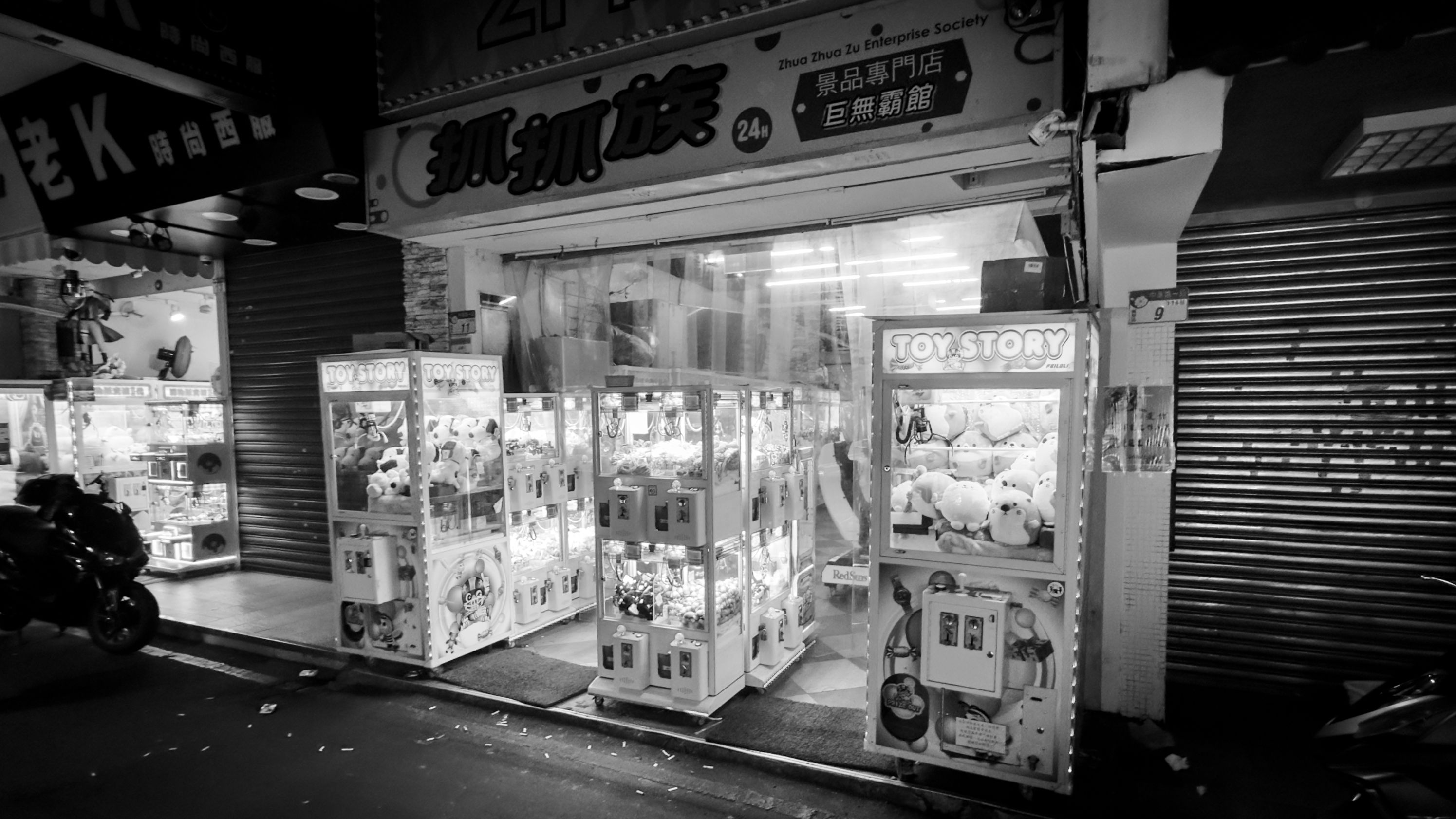
It’s been almost a year since I arrived in Taipei for the first time, 6 months since I officially moved here. I still haven't figured out what to say when people ask why I'm here. ’Is it for studying? Or for work?’ they usually ask. And I always feel a little pretentious when I reply: ’for living’. On paper, I have no business being here. I’m a freelance software engineer from Germany working with European clients. I have no family or spouse here, and only made friends in this part of the world after arriving. I don’t even speak Chinese yet. So I guess, I am here because I … like it?
Life Got Weird in the Best Ways
When Covid hit Germany in 2020, I was 30 years old and at the end of a 10-year career as a journalist in Hannover. I had never lived anywhere that’s further than 30 kilometres away from my hometown. I had spent most of my twenties in therapy for various diagnoses. It worked out very well for me and I was under the impression of having come a long way. But my life was still largely dominated by fear – of the outside world, my girlfriend, my friends, myself. I still had a deep-seated belief that I couldn’t handle life, the everyday things that everybody else seemed to handle so naturally. And while people around me often seemed impressed by my job and the skills that came with it, I simply felt inadequate and profoundly strange.
In the five years that followed, life got weird in the best ways: I ended my work as a journalist and became a software engineer. I moved to a rather sketchy part of Berlin on my own. I learned enough Japanese to weasel my way into obtaining an advanced language certificate. I cancelled my lease, left Berlin, and travelled for two years without any home base to fall back on. I fell down the rabbit hole of East Asia's underground indie scene. Eventually I officially gave up my residency in Germany altogether and permanently moved to a country whose existence isn’t even officially acknowledged by most of the world. A country that’s equally known for being under threat of a Chinese invasion, as well as having invented bubble tea. Yummy.
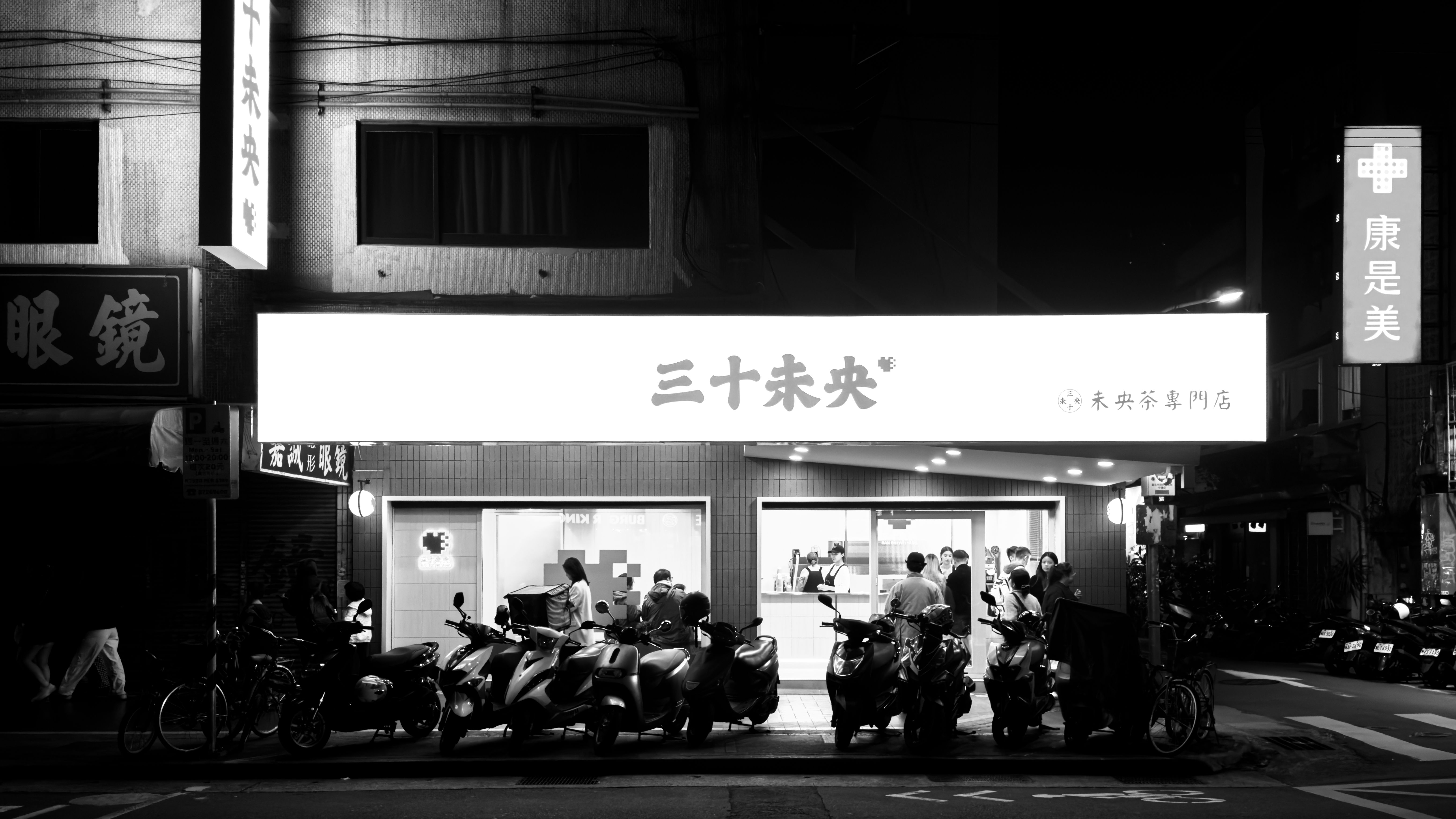
Whenever I talk to people about life plans, I find myself telling parts of this story to show how absurd long-term predictions really are to me. Sure, I made active decisions to go down this path — I had control. But my point is: 30-year-old me had no idea that any of this was coming. That guy was just hiding in his tiny room in a shared apartment in Hannover, playing digital card games and building silly little websites. Turns out, it can be quite an experience to put a little faith in chaos and let your interests fall where they may.
Mario Kart: Taipei Edition
The robot voice of the cyberpunk washing machine has gone silent after a final metaphor about sitting in a bomb shelter with the person it loves. All my coins are used up, my medium roasted oolong tea latte is empty, and I am sweating profusely. It’s time to go home. There are no other players left on the floor, nobody waiting in line to use my machine. So I take my time, unplug my headphones, take off my white cotton gloves, put everything neatly into my shoulder bag, and head to the bicycle rental station.
When I first came to Taiwan, riding a bicycle through Taipei was out of the question. But thanks to a bit of hand holding by my former roommates, I learned to love it. It often feels like a video game to me, like 'Mario Kart: Taipei Edition'. Somehow you need to find your way past strangely positioned electricity boxes, inconveniently placed MRT exits, abruptly ending sidewalks, well-hidden (or entirely missing) traffic lights, pedestrians walking cluelessly into bike lanes, unidentified liquids dripping from roofs, and so, so many scooters going wherever the fuck they want. To be completely honest though: It's genuinely not as chaotic as it sounds. It has become my favorite mode of transportation by far.
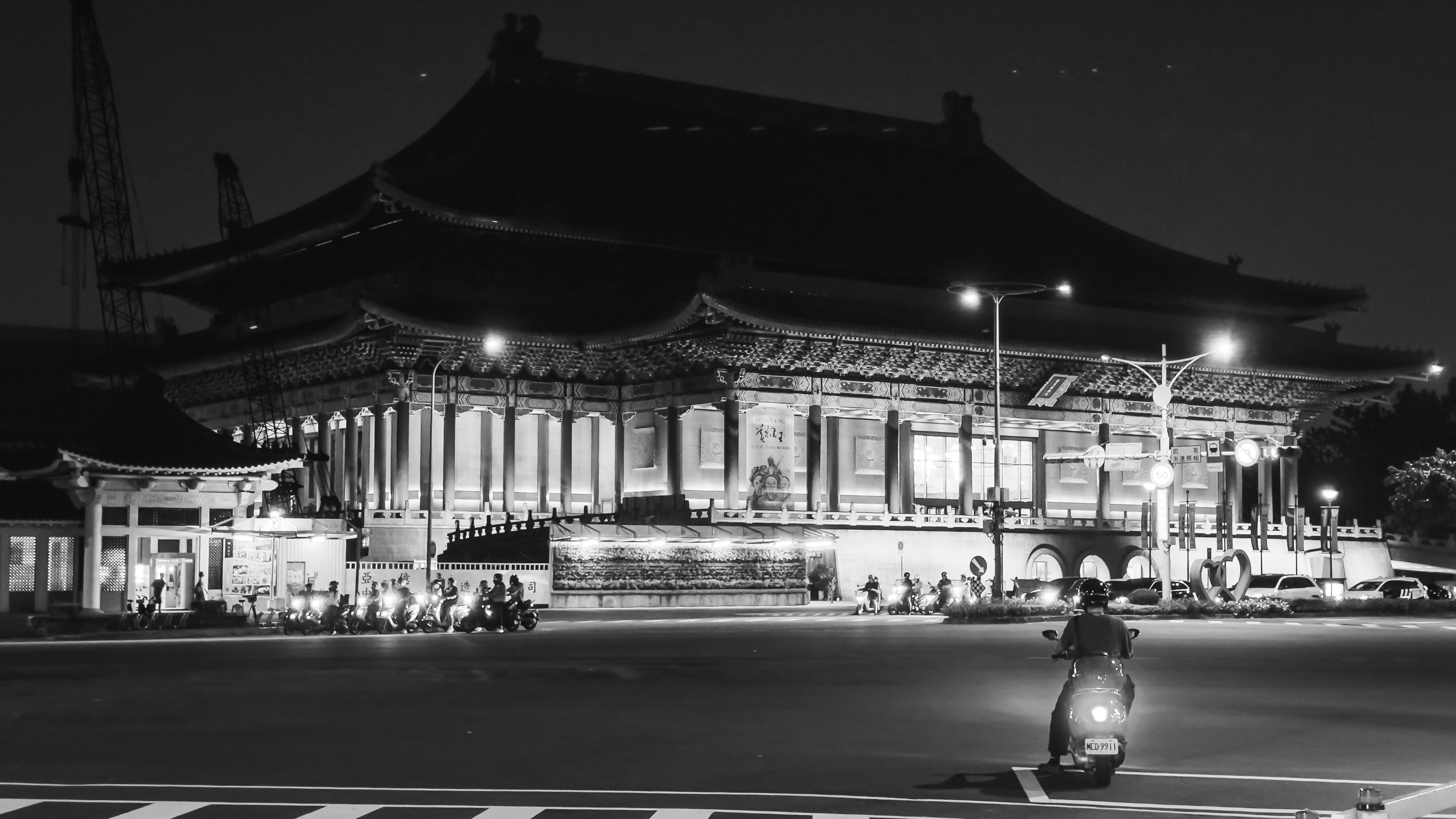
Of course now, at 1 am on a weekday, there isn’t much to be cautious of, apart from the occasional cockroach making a run at my foot while I wait for the traffic light to turn green. I cycle past Longshan Temple, a beautiful historical building right in the middle of Taipei’s most seedy and worn down area, past homeless people and street walkers from Southeast Asia. I cycle past the government district with its long tree-lined streets, green parks and the occasional armed soldier guarding a nondescript wall. I cycle past Liberty Square with its jaw-dropping, massive traditional architecture. I cycle past a student bar where a bunch of foreigners and Taiwanese people are drinking beer outside in the calm Taipei night. Finally, I reach the small night market that I call my home and enter the tiny corridor in between food stalls and little crane game shops. I open the shrieking, giant metal door and sprint up the stairs towards the comfort of the ice cold AC of our sharehouse.
Unlearning Germany
Before I moved to Taiwan, I had spent most of my traveling time in Japan. I was probably the perfect tourist for Japan – socially anxious, overwhelmed by German negativity, and desperately needing structure I didn’t have to create myself. Naturally I also fell into the same ’Westerner discovers Japan is better’ frenzy that now floods all of our timelines. But while most people leave their admiration for life in Japan at dreamily uttering the words ’I should live here’ before inevitably returning to their lives back home – I blew up mine. There wasn’t much left holding me back from leaving a country I had never felt comfortable in.
I opened myself up to unlearning who I was and reconstructing myself, deliberately letting these new environments shape me. As a vegetarian of 15 years, I started eating meat again in order to dive into cultures that were heavily food-centered and had a very different value system when it comes to the topic of eating animals. While working as a journalist in Germany, I was adamant about precise language. German often demands you spell everything out explicitly and with precision. Learning to speak Japanese and to think in its underlying behavioral concepts taught me that it’s completely viable to leave many things to the shared context that comes with every conversation. You don’t need to be explicit about details when everybody understands the implications of what is being said. Even though my worldview had been shifting rapidly for years, this deliberate cultural immersion accelerated everything beyond what I'd ever experienced.
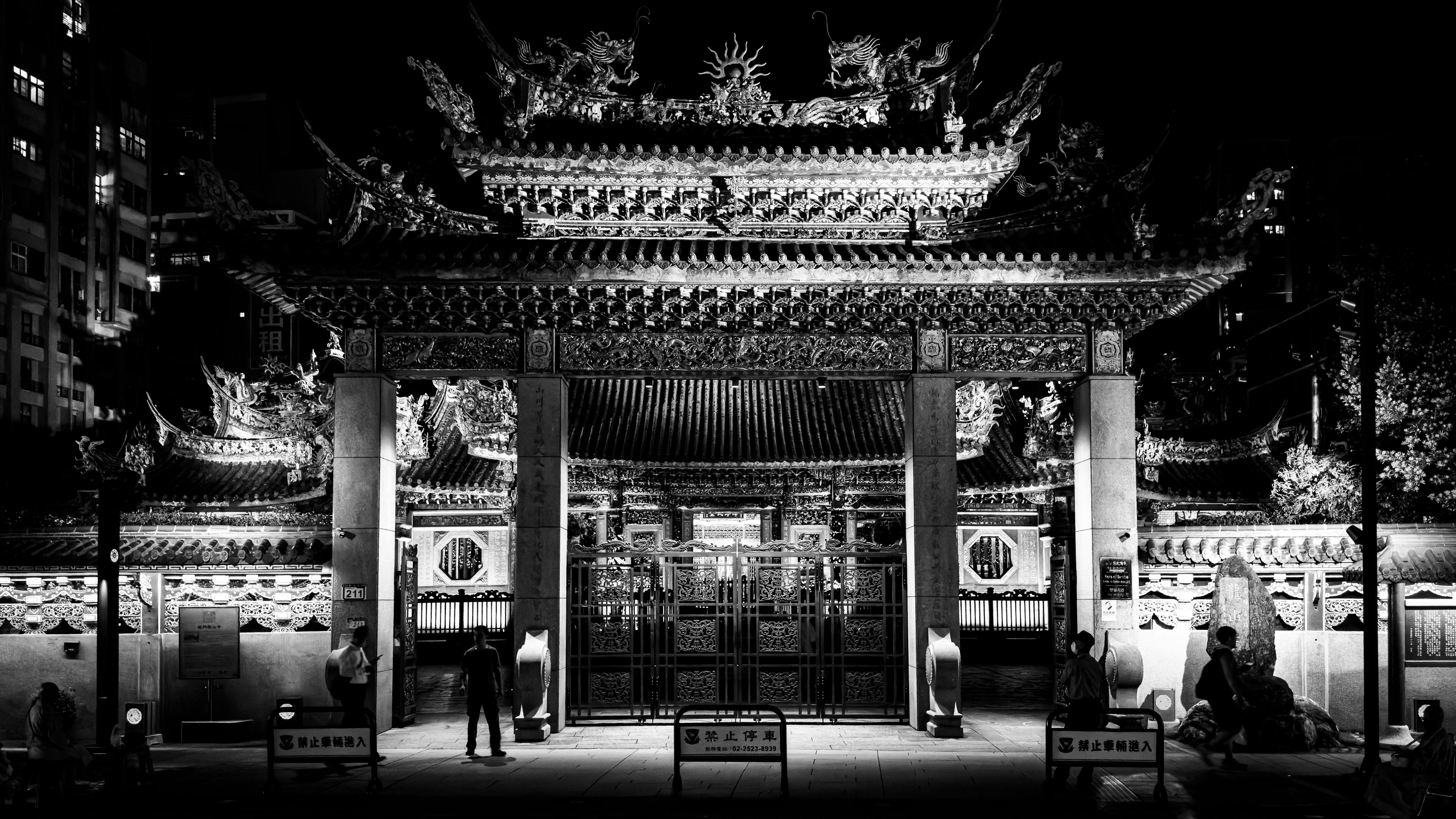
The Exception Of An Exception
This transformation came with a cost. It also made me feel like I was becoming more and more of an exception of an exception of an exception. For better or for worse, my life started feeling like it went deeper and deeper into strange territory. When I was talking to friends back in Germany about my life, I couldn't find words to describe even the most fundamental shifts in my perspective on life. They kept talking about China’s invasion plans for Taiwan and high tech toilets in Japan. Then they asked me what makes life so different for me in East Asia compared to my life in Germany. Lacking the vocabulary to describe the complex emotional phenomenon I was experiencing, the best I could come up with was: ’People there don’t act so miserable all the time.’
While that wasn’t wrong, I myself am not exactly blending into my new environment either. In many ways, I am doomed to forever remain an outsider in the countries I now spend my life in. No matter how good my pronunciation sounds in Japanese (and hopefully someday in Chinese too), I will always be a white, heavily tattooed foreigner who is way too tall to not stick out of the crowd and bang my head on the door frames. And no matter how much I assimilate my behavior, my mannerisms and facial expressions – there will always be things that will make me not fully match local customs simply because I was born and raised in Germany.
At times, this made me incredibly lonely. Who can expect to find genuine connection with other people once you’ve wandered off too far into strange territory for them to relate to your experiences? Especially when you’re living in an environment so different from where you were raised. An environment that you don’t even have language fluency in. And it’s not like you’re getting any younger either: How do you expect to ever find a partner in a life like this?
The Escapist Network
When I wake up the next morning, my French roommate is already lying on the couch waiting for me to get up, so we can get Chinese omelettes and chicken nuggets for breakfast and play Mario Kart. She’s studying abroad here and will soon leave the house to go on trips throughout East Asia before returning to Europe. Our Taiwanese roommate is sitting at the table studying for her classes to become a pilates instructor. In total, this house can have up to 9 residents. It’s located close to two universities, so we get a lot of students doing semesters abroad but others as well. Residents come and go quite frequently, which constantly changes the atmosphere of the house.
Since leaving Europe, I have almost exclusively been living in international sharehouses like this one. Most of the time it’s a mix between foreigners from all over the world and locals who want to live with them. And of course it doesn’t stop at living together – people bring their friends into the house, you go out and do stuff together, and it all snowballs from there. The lolita fashion enthusiast from Italy, the metal-loving accountant from Argentina, the Japanese language wunderkind fluent in both Chinese and Korean, the video game-obsessed grindcore vocalist from the UK, the mathematics lecturer from South Korea, and many more people create an ever-expanding community of unlikely connections.
What we all seem to have, to some extent, is a sense of escapism. Apart from the students studying abroad, most foreign expats come here hoping to build a new life somewhere completely different. Often people do that because they didn’t like their life back home or don’t feel like they fit in where they are from. Just like me.
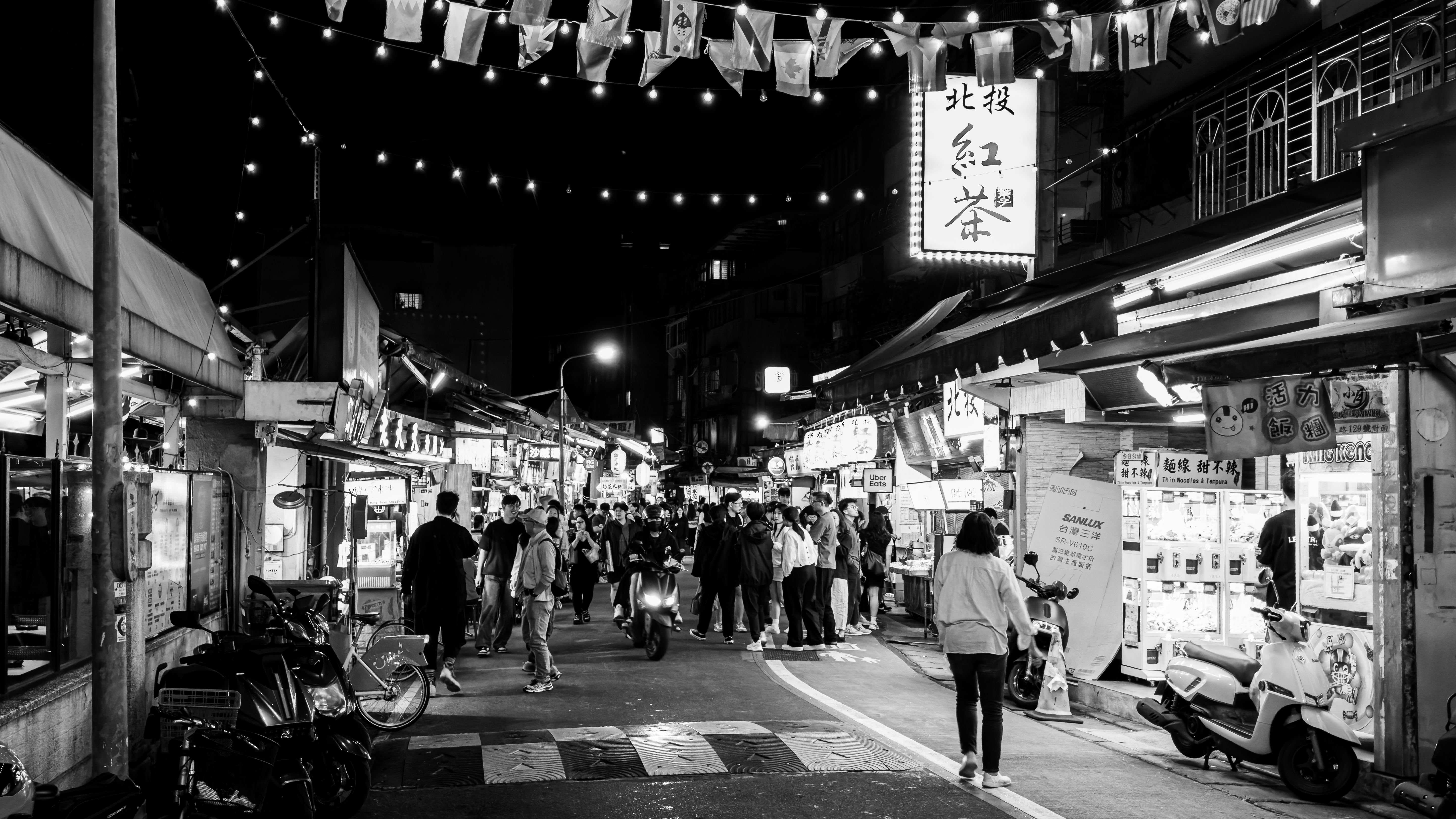
Everything is Made Up
Living in this high-contrast environment made me realize that not only am I wrong to believe my experiences are too weird for others to relate to – but also that thinking about these things in terms of ’weird’ and ’normal’ at all is ridiculous. Things are only ever strange to the people unfamiliar with them. For my friends and family in Germany, it might be bizarre to spend my nights vibing with a depressed Japanese robot in the earthquake house – they don’t even know about the existence of such a concept. But for the countless people frequenting gaming centers across East Asia every night, it is very much normal in every sense of the word. Some would even consider it boring.
What I am experiencing is not a descent into the strange, it’s the opportunity to experience a little more of the bandwidth of humanity than I was able to before cutting ties with life in Germany. And if anything, getting to know different shades of life in distant corners of the world has the potential to enhance my ability to relate to others’ experiences rather than diminish it. The only unusual thing about it is that I even get to have this lifestyle on a permanent basis.
I can feel how this is making me more patient with the world. I've started to see how most of the things people get worked up about – their certainties, their rules, their assumptions about how life should work – are just social conventions. They are stories we've collectively agreed to tell ourselves and each other. They are, for lack of a better word, made up. What feels like an unbreakable law in Germany might not even exist as a concept in Taiwan.
This realization is both unsettling and liberating. If so much of what we consider reality is just collective imagination, then I get to choose which parts to take seriously and which parts to discard. It turns out that when you start questioning the most basic assumptions about how life should be lived, everything else becomes negotiable too. The pressure to explain my choices to people back home suddenly feels pointless – we're all operating from completely different frameworks anyway.
Rather than feeling isolated by this disconnect, I find it fascinating and engaging. There are so many ways to be human that I'll never even glimpse, and the few I've encountered have already shifted how I see everything. It's not that I've become some supposedly enlightened expat though – I’m still just as much of a clueless child as I have ever been. Just with less need of parental supervision.
The next night, I go back to the earthquake house. I always make sure to go after 11 pm to get less waiting time for a free machine. Today I am lucky, there is a free machine in the middle of two couples playing songs on maimai’s highest levels, possessing advanced skills I can only dream of. To them, I am invisible. The songs I play are what high level players consider ’sleepers’ – songs that are so easy that they make the players fall asleep. And while my non-player friends might be somewhat impressed when they watch me play these songs, the other players here sure aren’t. I am just one of many low level players. Normal. Relatable. Boring even.
